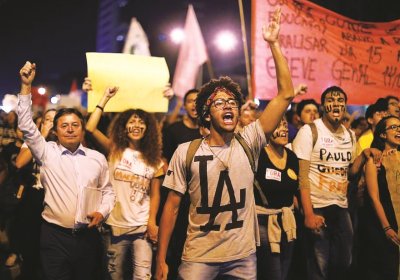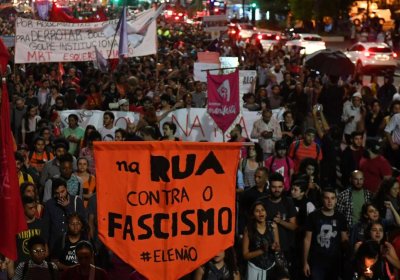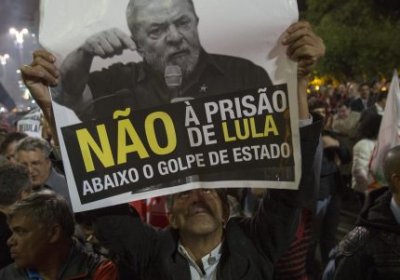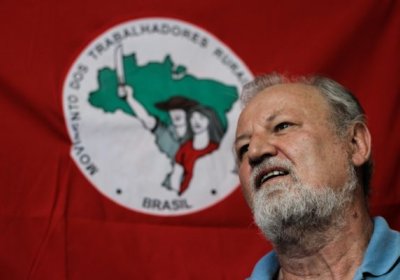Since Brazil’s 2016 parliamentary coup d’etat, in which former president Dilma Rousseff was removed on a later-exonerated technicality, Brazil’s ultra-right-wing president Jair Bolsonaro has made every effort to destroy any remnants of the legacy left by the Brazilian Workers’ Party (PT).
Dilma Rousseff
A nationwide education strike on May 15 became the platform for the biggest anti-government protests since President Jair Bolsonaro took power.
In a stunning upset that may radically alter the political landscape of Latin America, far-right leader Jair Bolsonaro won 46% of the vote in the October 7 presidential election in Brazil.
Bolsonaro fell short of the needed outright majority to avoid a second round, but he scored a far more decisive victory than expected, Democracy Now! reported.
For those who have been following Brazil closely in recent years, the case against former President Luiz Inacio Lula da Silva is clear-cut. And no, it’s not about tackling corruption, it’s about subverting Brazilian democracy for the second time in two years.
Whether “free or imprisoned,” Luiz Inacio Lula da Silva “will be elected president” of Brazil following October's general election, said former Brazilian President Dilma Rousseff, speaking during a visit to Buenos Aires, Argentina, on May 1.
Dilma said the recent attacks on Lula and the Workers’ Party are all part of a “lawfare” against the left in the country.
The jailing of ex-Workers’ party (PT) president Luiz Inácio Lula da Silva can only be seen as a continuation of the “institutional coup” begun in 2016 that ousted elected PT President Dilma Rousseff, writes Juan Cruz Ferre.
Luiz Inácio Lula da Silva, popularly known as “Lula”, decided to turn himself in after the Brazilian Supreme Court found him guilty of corruption and handed down a 12-year jail sentence on April 5. After 10 hours of debate, the Court turned down Lula’s plea to remain free by one vote— four against five.
Former Brazilian President Luiz Inacio "Lula" da Silva was sentenced on July 12 to nine years and six months jail over corruption charges in the Operation Car Wash investigations. The ruling came a day after the Brazilian Senate's approval of President Michel Temer's unamended labour reform bill, which has been heavily criticised by trade unions and social movements.
A year on from the parliamentary coup that ousted former Brazilian President Dilma Rousseff, Brazil has become a neoliberal disaster and approval ratings for the incumbent right-wing government have slumped to record low levels.
The democratically-elected president was ousted in May last year without any proof of wrongdoing. Michel Temer, who then served as vice president, was installed as interim president. On August 31, Rousseff was formally removed from office.
Brazil’s constitutional affairs committee in the Senate approved the PEC 55 constitutional reform to create a 20-year ceiling for federal spending on November 9.
The committee voted 19-7 and approved PEC 55, previously called PEC 241, which was proposed by coup-imposed President Michel Temer in a bid to cut Brazil's budget deficit.
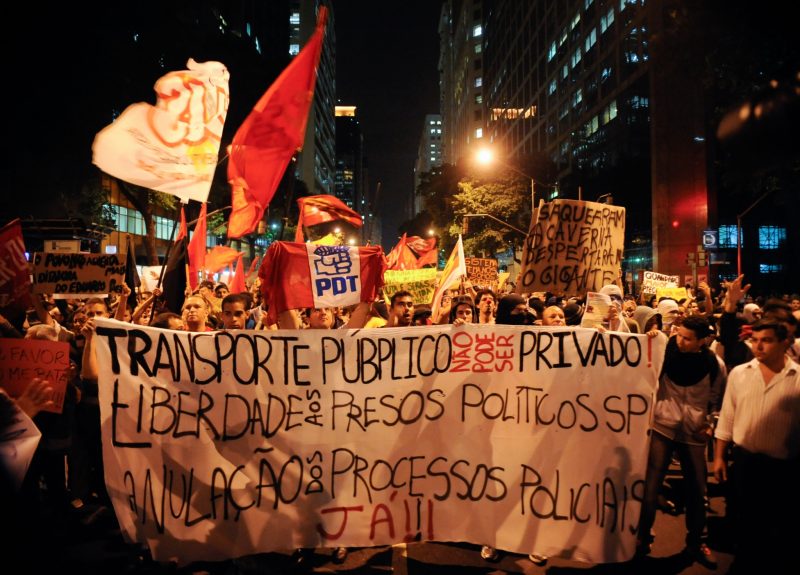 Protests triggered by public transport fare increases in 2013.
Protests triggered by public transport fare increases in 2013.
Less than two years after Workers’ Party (PT) candidate Dilma Rousseff was re-elected as Brazil’s president, she was removed from office by the Brazilian senate.
The Brazilian right, which controls the senate, carried out a constitutional coup. In the process, they revealed their contempt for democracy.
Oppose the coups in Latin America! Solidarity with the people of Venezuela and Brazil!
We, the undersigned, condemn the destabilisation plan underway in Venezuela against President Nicolas Maduro. We send our solidarity to President Maduro and the Venezuelan people who are resisting attempts by right-wing opposition forces to oust a democratically-elected government by violent means in violation of the democratic vote of the people and the country’s constitution.
MST leader says Brazilians must rise up
Joao Pedro Stedile is a founder and leader of Brazil's Landless Workers' Movement (MST). One of Latin America’s largest social movements, the MST fights for land reform and the rights of poor farmers.
Below, Stedile calls for resistance to the “institutional coup” in Brazil, in which elected Workers’ Party (PT) president Dilma Rousseff was removed by the Senate and Michel Temer installed on August 31.
* * *
- Page 1
- Next page

